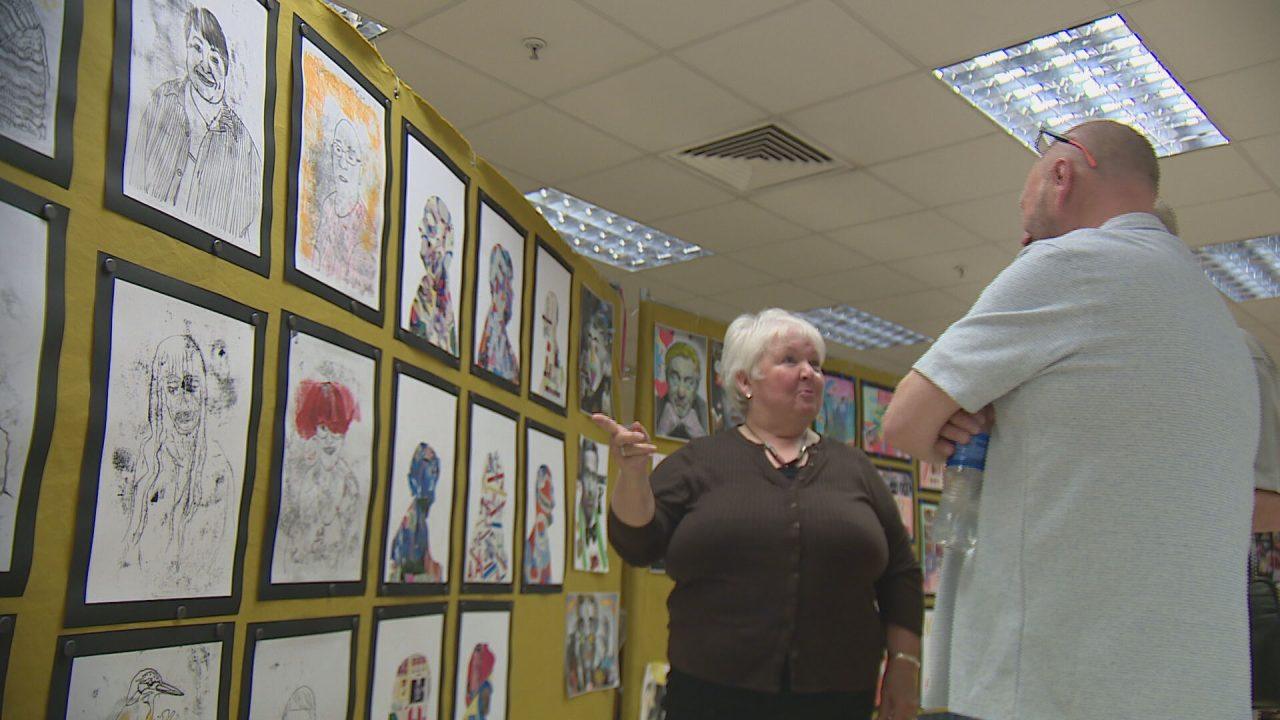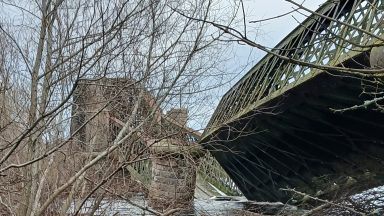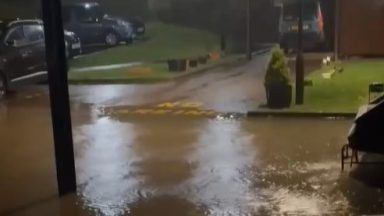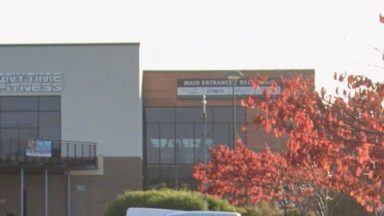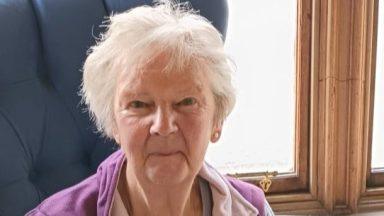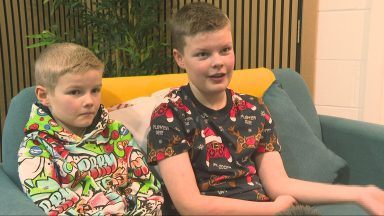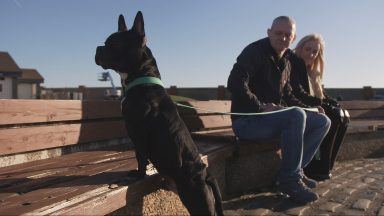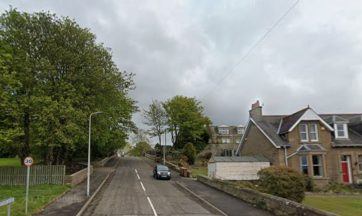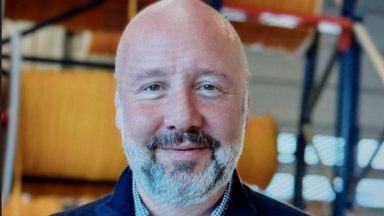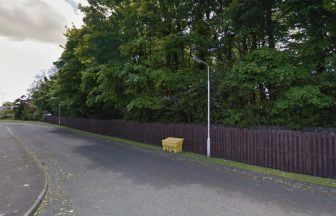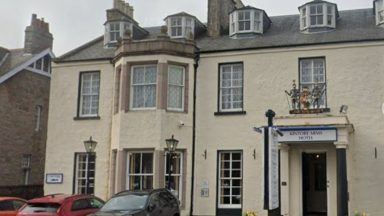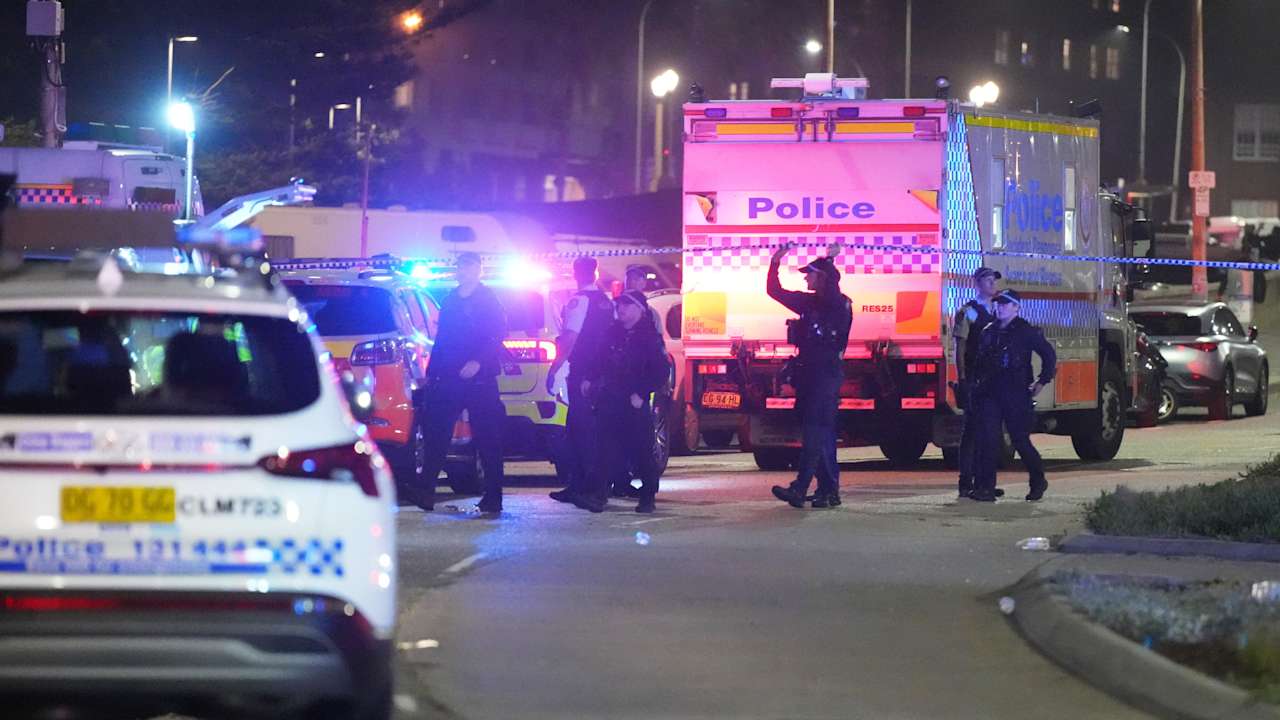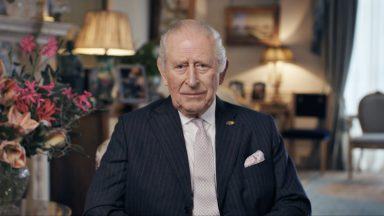When Wendy Wallace had a stroke in August 2015, her ability to read, write, and understand words, as well as her ability to speak them, was going to change forever.
The former supermarket manager from Dundee had suffered a cut to the communication pathways in around a third of her brain.
She is now one of around 40,000 people in Scotland living with aphasia – a condition most common in people recovering from a stroke or brain injury.
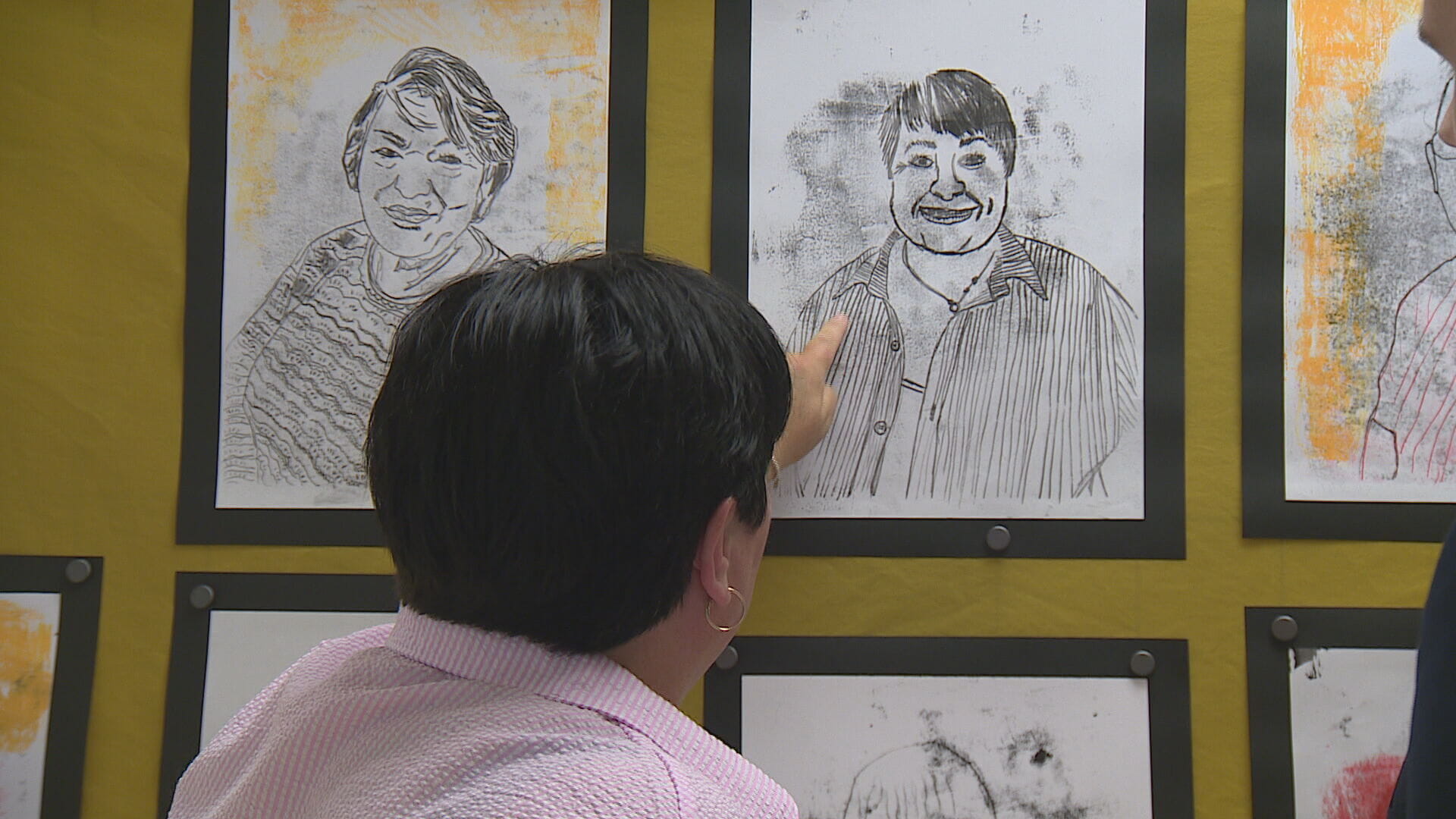 STV News
STV NewsSpeech and language therapy can help, although there is currently no cure.
‘I will not be quiet!’
Wendy has been attending art workshops for the last eight weeks alongside other people living with aphasia in Tayside.
In a letter to STV News, she told us they had been a “lifeline” to her and many others.
“Each class is different,” she said. “Allowing me to try new things that I would never have even thought about, even finding and developing my artistic and musical skills.
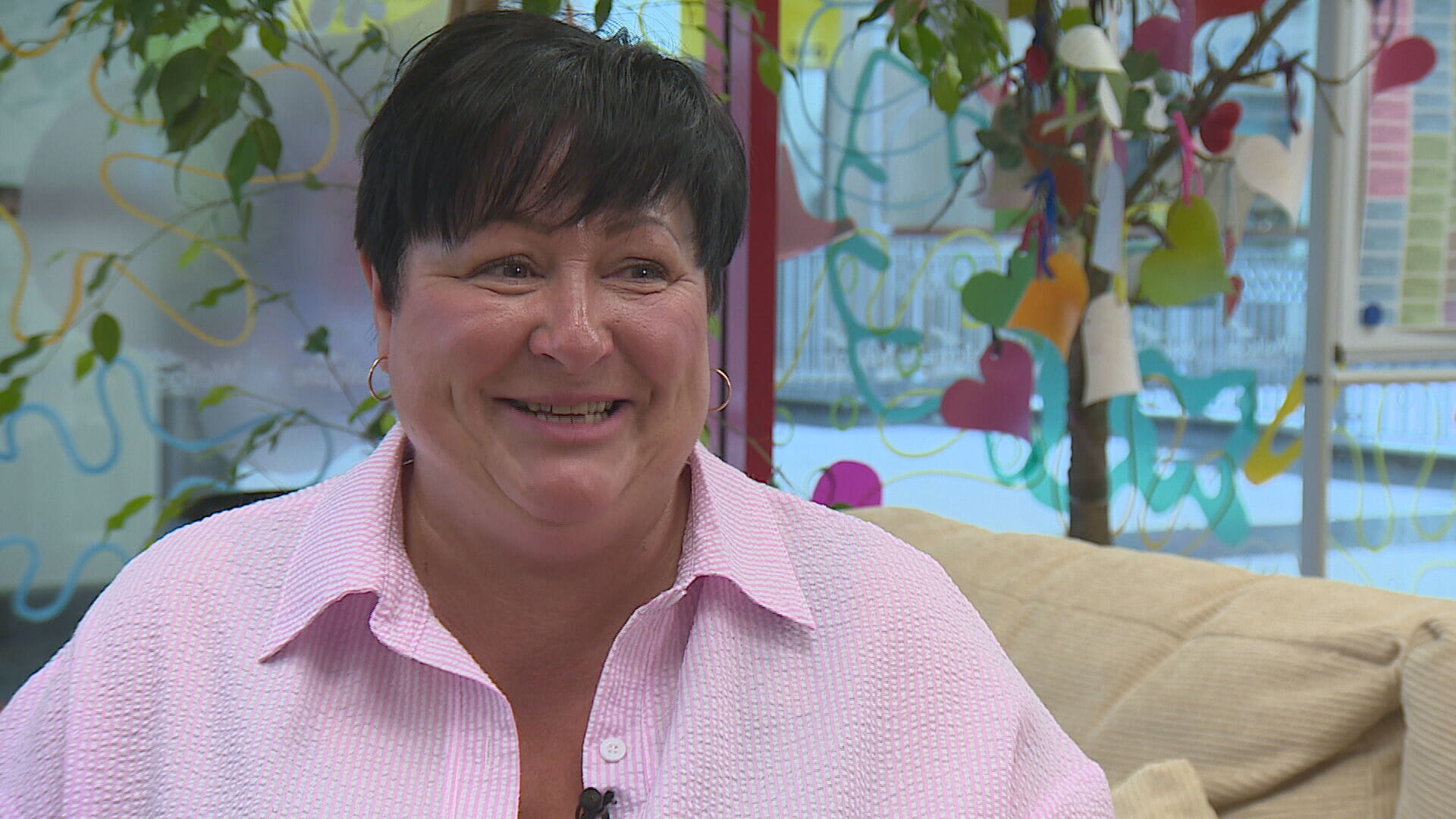 STV News
STV News“Taking part has been amazing, working and meeting people with similar conditions, supporting each other, having a laugh and even sharing a tear.
“The classes give some a reason to get out of their homes and comfort zones, to help realise they have still plenty to add.”
She added: “I will not remain quiet!”
‘People get surprised with what they can achieve’
A showcase event was held in Dundee’s Wellgate centre at the end of the workshops, for family and friends to see the work that had been produced.
The sessions were run by Tayside Healthcare Arts Trust in collaboration with aphasia charity Speakability Tayside.
Iona McCann, from the arts trust, said: “Quite a bit of portraiture has come into it, we’ve done printmaking, sowing, a lot of collage – sometimes all three all together.
“We’ve tried quite a few different techniques here, and been led on what they’ve been interested in as well.”
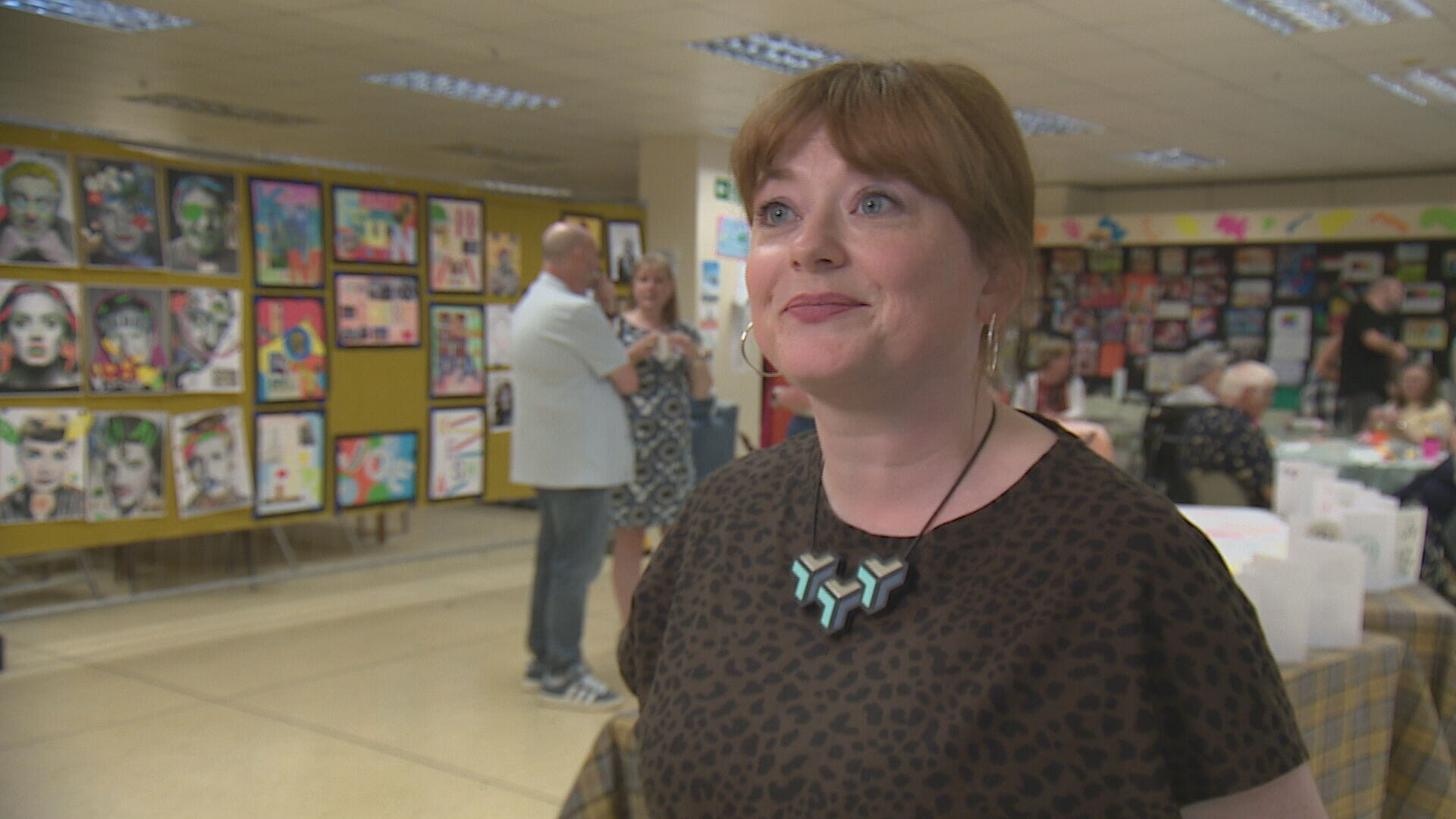 STV News
STV NewsShe added: “People get surprised with what they can achieve.
“It’ll focus more on what they can do and maybe less of a medical model where they’re told that they can’t do things.
“Art can be such a brilliant tool to help with communication and communicate things that are hard to articulate.”
‘It’s such a beautiful source of belonging’
The work produced over the eight weeks will now inform a larger textile artwork – hoping to raise awareness of aphasia.
It will be revealed at the British Aphasiology Society International Conference 2025, also being held in Dundee.
Dr Abi Roper, a research fellow at City St George’s, University of London, will be chairing the conference and was at the showcase event.
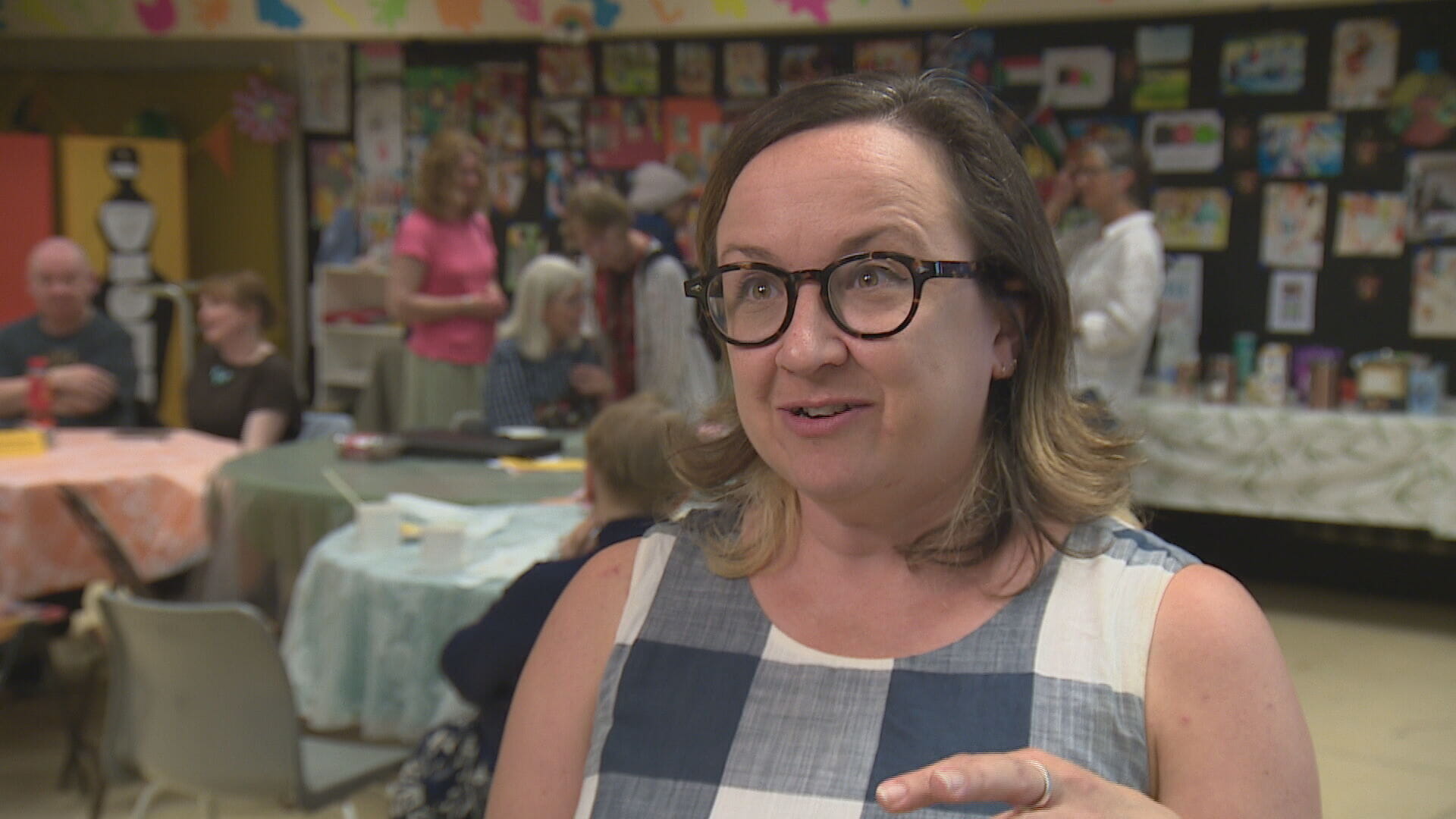 STV News
STV NewsShe told STV News: “We’re going to have people from all over the world coming to Dundee.
“It will be speech therapists and researchers coming and sharing their work about the latest innovations in research, therapy, and technology with an international audience.
“The workshops here have given us a route intothe display and made sure that the [Dundee] community is part of the conference.”
On the workshops, she said: “When you have acquired a difficulty like aphasia, where it’s harder for you to speak and listen and read and write, you need to be really creative.
“It’s just such a beautiful source of belonging and identity for people who might have had their sense of identity changed because their communication has changed.”
Follow STV News on WhatsApp
Scan the QR code on your mobile device for all the latest news from around the country


